Current PhD Students
Yousef R. E. Babish BScOT, BLS ⟩(He/Him/His)
Faculty Mentor:
Joy Agner PhD, OTR/L
Research Lab: Health Equity Action Lab (HEAL)
Year of Entry: 2024
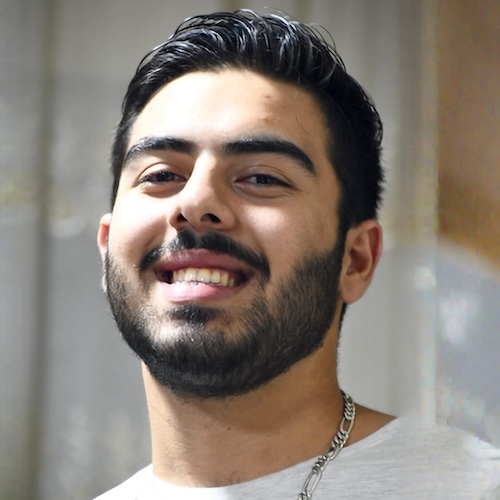
As a PhD student, my diverse background deeply influences my research and professional pursuits. I am a Middle Eastern and Christian occupational therapist from Palestine, with experience working with a varied patient population. My Western-based education, combined with my experiences from a marginalized Palestinian community marked by occupational injustice, deprivation, and apartheid, has profoundly shaped my perspective.
These experiences have broadened my understanding of the social determinants of health and underscored the need to challenge entrenched policies while advocating for holistic, person-centered care. My research interests are driven by a commitment to exploring the intersection of identity and mental health disparities. I am particularly focused on how social and cultural identities—such as race, gender, class, sexuality, and disability—interact to affect mental health outcomes at the community level. This intersectional approach illuminates the multifaceted barriers faced by marginalized communities, including limited access to healthcare, exacerbated health issues, and constrained physical activity, which contribute to secondary mental health challenges like collective trauma, chronic conditions, and complex grief.
In my research journey, I have investigated the influence of cultural and gender norms on occupational therapy practices in Palestine. A small-scale qualitative project, conducted over the course of two years in collaboration with local occupational therapists, aimed to understand how clients’ cultural values are integrated into therapeutic interventions. The discussion highlighted the theoretical necessity for cultural humility in occupational therapy, advocating for alignment with local values and addressing resource limitations to ensure effective service delivery. It also underscored the need for further research in occupational science and therapy that addresses the distinct needs of marginalized populations.
Looking ahead, I am dedicated to continuing my research and contributing to advancements that promote equitable and culturally informed healthcare services.
⋯
Holly Carrington BA ⟩(she/her)
Faculty Mentor:
Alison M. Cogan PhD, OTR/L
Research Lab: Rehabilitation and Functional Recovery Studies in Health Services (ReFReSH)
Year of Entry: 2024
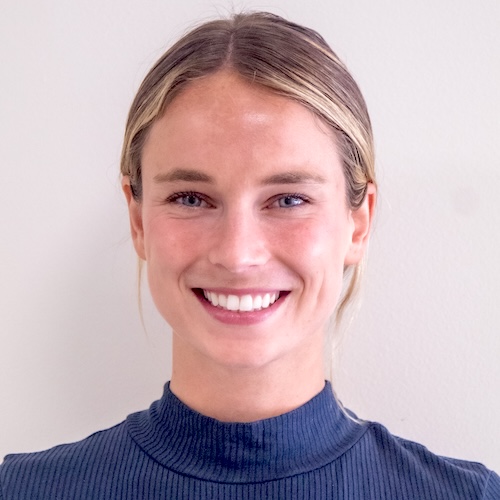
Hello, my name is Holly and I am a first-year student in the Occupational Science PhD program. I received my BA from the University of Virginia in 2020. Before entering the program, I worked as a Clinical Research Coordinator for the Brain Injury Research Center of Mount Sinai Hospital in New York City, and the Psychiatry Neuroimaging Lab of Mass General Brigham and Harvard Medical School in Boston, MA.
My research interests relate to improving rehabilitation outcomes for individuals who have sustained a traumatic brain injury (TBI). I am specifically interested in applying community-based participatory research (CBPR) methodologies to inform accessible interventions that improve quality of life for people living with a TBI. If you have any questions about my research interests, the ReFReSH Lab, or the PhD Program, please feel free to contact me via email at .(JavaScript must be enabled to view this email address).
⋯
Stuti Chakraborty ⟩(she/her/hers)
Faculty Mentor:
Sook-Lei Liew PhD, OTR/L, FAOTA
Research Lab: Neural Plasticity and Neurorehabilitation (NPNL)
Year of Entry: 2022
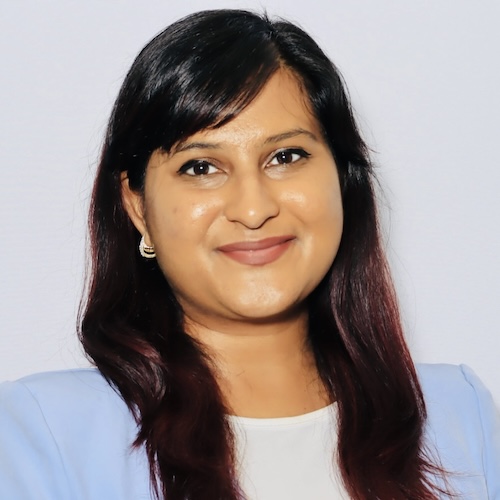
My research interests involve understanding the neural mechanisms behind recovery from stroke and traumatic brain injury. I am interested in the use of functional and structural neuroimaging methods to determine regions of the brain affected in stroke to develop improved outcomes for recovery and also to aid in the understanding of disease processes. I have prior experience in the use of non-invasive brain stimulation to enhance motor skills in stroke patients with mild to moderate deficits. As an Occupational Therapist trained in one of the largest tertiary care hospitals in India, I have had the opportunity to work with a wide range of patients with neurological disorders, stroke being the most common. At the Neural Plasticity and Neurorehabilitation Lab, I look forward to combining my previous clinical training as an OT with my interest in neuroimaging to design, test and validate programs that are better equipped to treat and detect stroke lesions.
⋯
Ylenia D’elia MA ⟩(She/Her)
Faculty Mentor:
Lisa Aziz-Zadeh PhD
Research Lab: Center for the Neuroscience of Embodied Cognition (CeNEC) at the Brain and Creativity Institute
Year of Entry: 2024
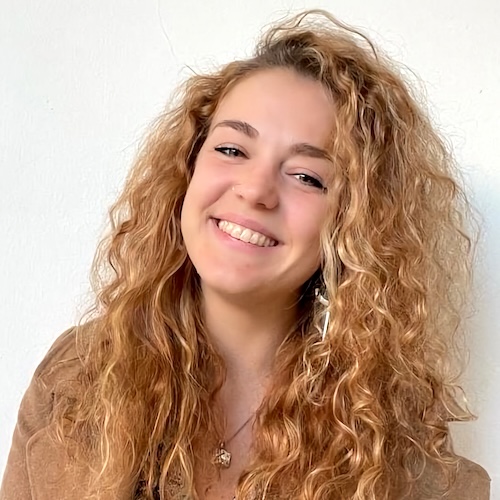
I am Ylenia D’elia, from Italy. I am currently a PhD student at the Center for the Neuroscience of Embodied Cognition at the Brain and Creativity Institute, under the guidance of Dr. Lisa Aziz-Zadeh. My passion for understanding the intricate mechanisms of the brain — how it shapes our thoughts, emotions, personality, and behavior — has been a driving force throughout my academic journey. This curiosity led me to pursue a master’s degree in neuroscience.
My main area of research is social emotions and social interactions. I previously worked as a research assistant at the Technical University and at the Centre for Neurodegenerative Disorders (DZNE) in Dresden, Germany, for about two years. And then I spent over a year at the University of Valencia, in Spain. My previous projects have focused on enhancing prosocial behavior, and developing non-pharmacological interventions to impact lifestyle factors and emotions such as empathy and compassion to improve the quality of life and well-being in individuals. My research also extends to the benefits of different meditative practices, including the development of a pictographic scale to measure its phenomenological dimensions. I am deeply passionate about research and am committed to making a meaningful impact on individuals’ lives through my work in this field.
⋯
Zama Dlamini MPH ⟩
Faculty Mentor:
Rebecca Aldrich PhD, OTR/L;
Shawn C. Roll PhD, OTR/L, RMSKS, FAOTA, FAIUM
Research Lab: Human Occupation, Precarity, and Employment (HOPE)
Year of Entry: 2023
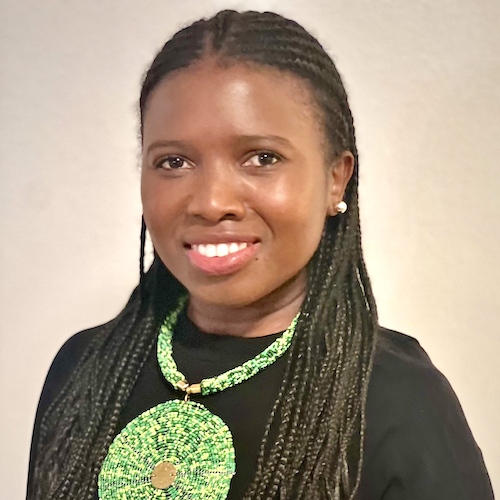
Sanibona!(Hello) My background is Public Health and my work has involved working with marginalized communities. I am from South Africa, and I’m currently a PhD student in Occupational Science under the guidance and support of Dr. Aldrich and Dr. Roll, and I am working as a research assistant to support the work that is currently taking place in Dr. Aldrich’s lab. Broadly speaking, my research interests revolve around occupational justice and the intersection of indigenous African health systems, culture, and management of chronic health conditions. One of my favorite quotes is by Dr. Molefi Kete Asante, a researcher, author, and professor in the discipline of Africana Studies, which highlights the importance of a culturally and historically grounded approach to studying people’s lived reality: “It’s not who we study, it’s how we study.”
⋯
Caitlin G. Dobson OTR/L ⟩
Faculty Mentor:
Alison M. Cogan PhD, OTR/L
Research Lab: Rehabilitation and Functional Recovery Studies in Health Services (ReFReSH)
Year of Entry: 2023
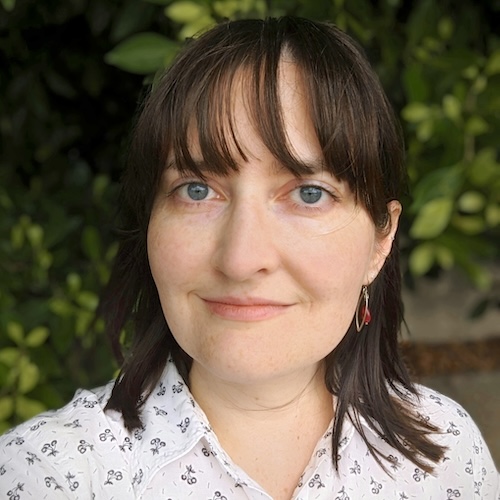
My research interests have been informed by my practice as a home health occupational therapist in the California Central Valley from 2018 to 2023. My work in Dr. Cogan’s lab has focused on Medicare policy changes and disorders of consciousness among patients with brain injuries. I am especially interested in how health policy affects occupation, particularly among individuals who have conditions with unpredictable, nonlinear, or lengthy recovery times. I am also interested in narratives describing how transitioning to another social context or role affects social participation and the occupational challenges that arise.
⋯
Yiyang (Sunny) Fang OTD, OTR/L ⟩(she/her/hers)
Faculty Mentor:
Shawn C. Roll PhD, OTR/L, RMSKS, FAOTA, FAIUM
Research Lab: Musculoskeletal Sonography and Occupational Performance (MSOP)
Year of Entry: 2021
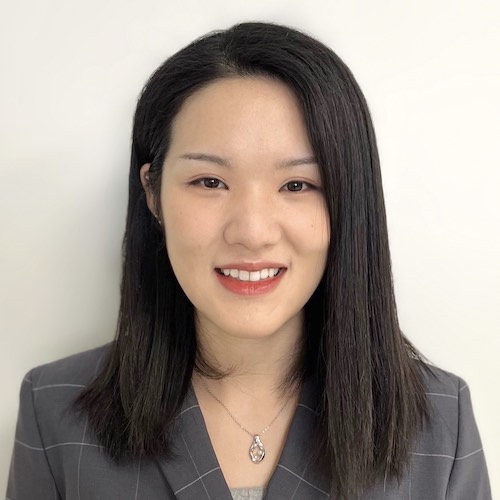
My research interests are focused on prevention of work-related musculoskeletal injuries in the upper extremity and ergonomics to reduce pain and discomfort. I am particularly interested in behavioral prevention strategies to help workers in industries that have high risk for developing work-related injuries. I am currently working on a research project that assesses the risk of musculoskeletal injuries in dental hygiene students.
⋯
Marshae Franklin OTD, MSOT, OTR/L ⟩(she/her/hers)
Faculty Mentor:
Amber Angell PhD, OTR/L
Research Lab: Disparity Reduction and Equity in Autism Services (DREAmS)
Year of Entry: 2021
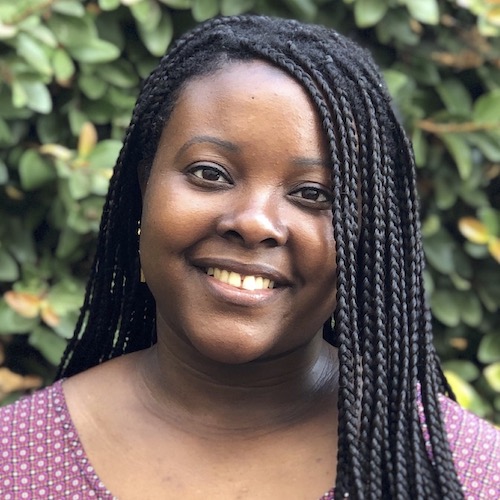
As a PhD student in the Disparity Reduction and Equity in Autism Services (DREAmS) lab under the direction of Dr. Amber Angell, I use qualitative methods to gather in-depth knowledge about the lived experiences of underrepresented and underserved families of autistic girls. In alignment with the mission of the DREAmS lab, I am particularly interested in promoting authentic ‘belonging’ and increasing participation for vulnerable populations (e.g., neurodiverse and BIPOC) in various social spaces. Currently, my research centers around using participatory action research approaches (e.g., photovoice) to explore the experiences of neurodivergent women of color in higher education. As an occupational scientist and therapist, I seek to amplify the voices of historically marginalized populations. While closing knowledge gaps is critical, my scholarly work is also action-oriented, i.e., equipping readers with steps to improve diversity, equity, inclusion, justice, and belonging (DEIJB) outcomes for those at the margins.
⋯
Sahar Ghahramani ⟩(she/her/hers)
Faculty Mentor:
Bobbi Pineda PhD, OTR/L, CNT
Research Lab: NICU Therapy
Year of Entry: 2023
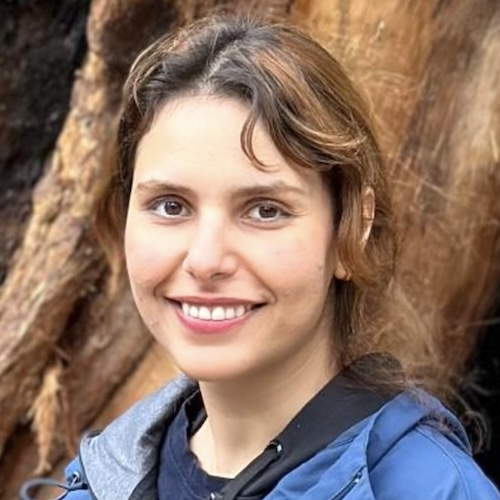
I firmly believe that every experience you have, every choice you make, and every encounter you have with the universe is a chance to grow and learn and this was proven to me more and more up until this moment!
I come from the beautiful country of Iran, where I pursued my Bachelor’s and Master’s degrees. My academic path took me into the realm of pediatric therapy, particularly focusing on children with Autism Spectrum Disorder (ASD). For three years, I had the privilege of working mostly with these incredible young minds, helping them find their unique paths to play, learning, and childhood.
My time as a therapist, which began during my master’s studies, was rewarding yet left me with countless questions, serving as a constant reminder of the vast knowledge yet to be uncovered. It was during my master’s program that my academic orientation shifted as I embarked on a six-month internship at a prominent Neonatal Intensive Care Unit (NICU) center in the Middle East. This experience not only deepened my fascination with neonatal care but also laid the foundation for my research interests. My current focus revolves around the SENSE program in the NICU and the field of implementation science within this context. I’m particularly intrigued by the development and application of implementation strategies aimed at enhancing the accessibility of interventions within NICUs.
I have a fascination for research. The process of piecing together studies into comprehensive literature reviews gives me a unique sense of fulfillment. Writing the introductory section of a research article, followed by the anticipation of feedback from reviewers, is a thrilling journey of its own.
⋯
Savannah Gluck ⟩(she/her)
Faculty Mentor:
Grace Baranek PhD, OTR/L, FAOTA
Research Lab: Innovations in Neurodevelopmental Sensory Processing Research (insp!re)
Year of Entry: 2022
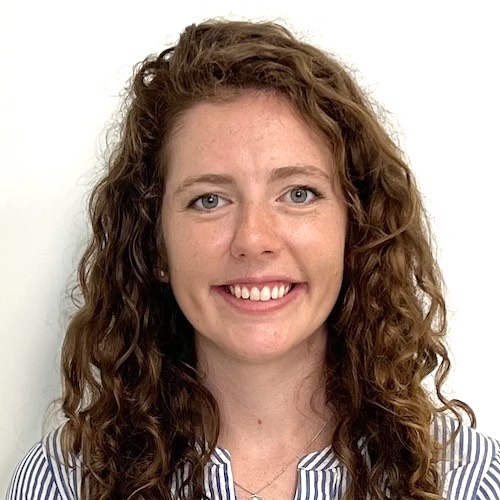
My research interests are focused on early indicators that may lead to an autism diagnosis, including sensory processing and communication differences. I am particularly interested in strengths-based parent education in relationship to screening, diagnosis, and early-intervention. As a research assistant in the Innovations in Neurodevelopmental Sensory Processing Research (insp!re) lab, I am working on a project that will use Respiratory Sinus Arrythmia (RSA) levels of both infants and caregivers to measure parent engagement and synchrony during early occupations (such as play, sleep, feeding, etc).
Prior to my time as a PhD student, I worked clinically as an occupational therapist in schools and for California Children’s Services for 4 years. During this time, I identified a need for more understanding of the parent and child relationship and how this impacts early occupation and development in young children with neurodevelopmental disorders. I am eager to explore this relationship, among many others, under the guidance of Dr. Baranek.
⋯





